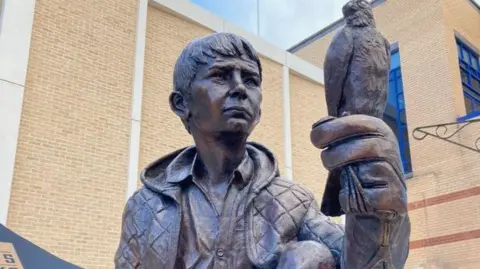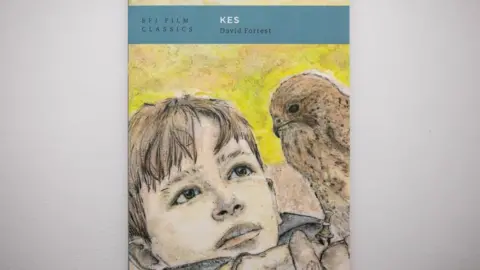New book focuses on legacy of Ken Loach classic Kes
 REUTERS/Gonzalo Fuentes
REUTERS/Gonzalo FuentesThe impact made by Ken Loach's 1969 South Yorkshire-based film Kes on British and world cinema is examined in a new book.
Kes tells the story of Billy, a working class boy from Barnsley who finds meaning in life when he takes a fledgling kestrel from its nest.
Based on Barnsley author Barry Hines' novel A Kestrel for a Knave, the film won two Bafta awards and was nominated for a further three.
Dave Forrest, the new book's writer, said the film showed while places like Barnsley often went unseen in the media, they were still "sites of beauty and potential".
Prof Forrest, professor of film and TV studies at the University of Sheffield, is an expert in British film and the life and works of Barry Hines, who was born in Hoyland, Barnsley.
He said his new book, Kes, celebrated the film for "its lasting legacy and its enduring cultural presence".

Far from being pessimistic, Kes pointed to a hopeful way of imagining Britain formed from the unique cultural contributions of its regions, towns and cities, Prof Forrest said.
Ken Loach's film "shows us that places like Barnsley - often overlooked and maligned in mainstream culture - are sites of humour, creativity, beauty and potential".
As part of his research when writing the book, Prof Forrest said he studied the Hines Archive - a collection of papers from Barry Hines, who died in 2016, which was donated to the University of Sheffield’s library.
The collection included manuscripts of Hines' major works, including A Kestrel for a Knave, the basis for the film.
 Dave Forrest
Dave ForrestProf Forrest said that papers in the collection revealed how Hines and Loach, collaborated to bring the story to the screen, as well proving to be an insight into how it was funded and produced.
“The book explains the conditions that allowed the creativity at the heart of Kes to thrive," he said.
"It traces how working class artists, such as Barry Hines and the film’s producer Tony Garnett, were able to draw on their own backgrounds to challenge the dominant ways of representing British society through film and television."
The book is part of the British Film Institute's Film Classics Series, which also includes books on other classic films such as The Searchers, starring John Wayne, and Raging Bull, directed by Martin Scorsese.
Prof Forrest said: "It's hugely exciting that a film from our region, from South Yorkshire, is taking its place amongst the pantheon of established - and now recognised - film classics."
Follow BBC Yorkshire on Facebook, X (formerly Twitter) and Instagram. Send your story ideas to [email protected].
